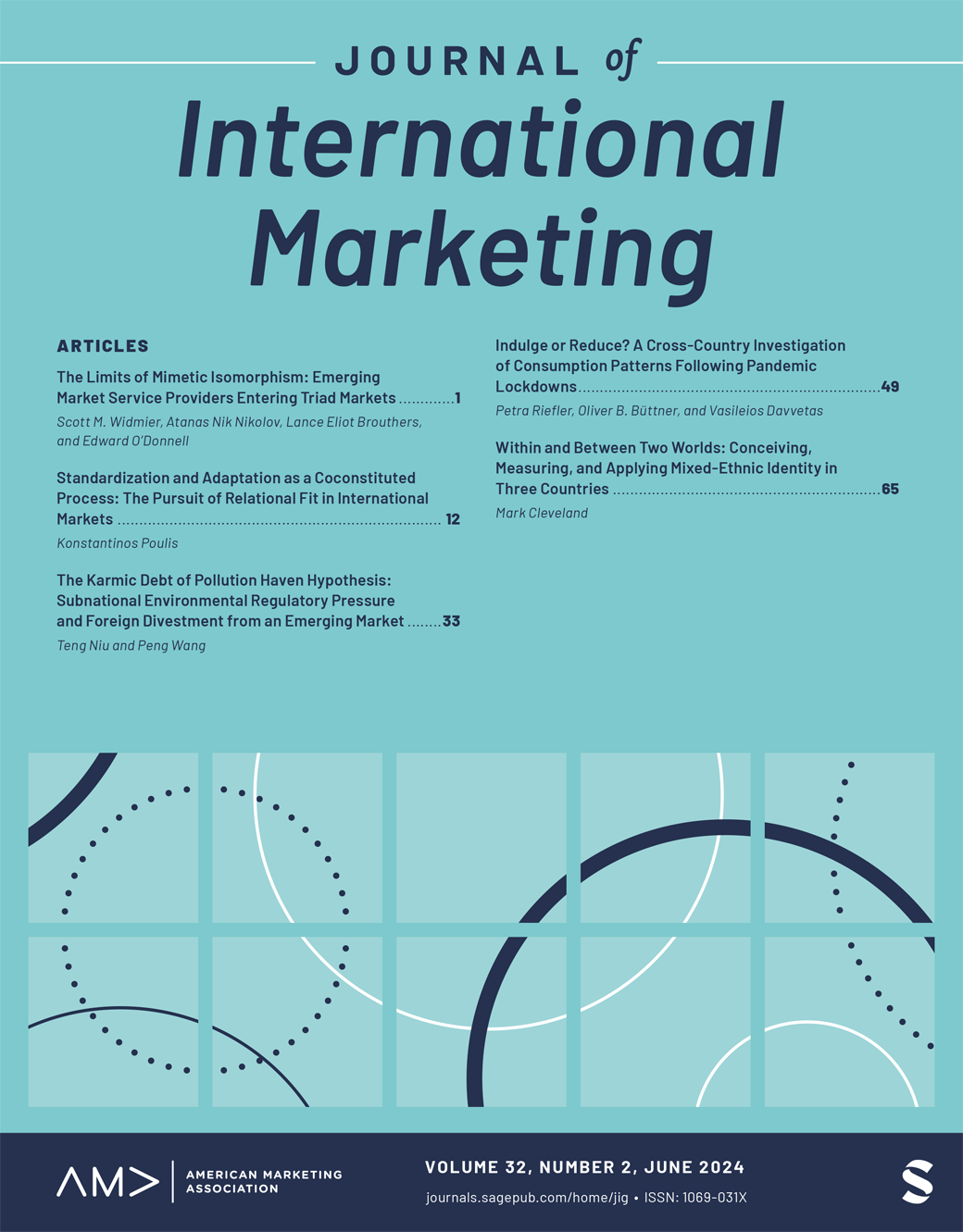EXPRESS:放纵还是减少?大流行封城后消费模式的跨国调查
IF 4.2
2区 管理学
Q1 BUSINESS
引用次数: 0
摘要
2020年初的疫情封锁扰乱了全球的日常生活方式,为自我反思和消费模式转变打开了机会之窗。然而,对于消费者是(1)在封城后延长以消费为导向的生活方式,还是(2)通过自我放纵来弥补封城后的消费限制,消费模式可能会朝着不同的方向发展,存在不同的观点。基于自我决定理论和个人文化价值观框架,本文建立了一个禁闭后消费模式的概念模型,该模型涉及三个因素:消费者在封城期间对基本心理需求的满足、个人消费者价值观和国家层面的文化取向。第一次封锁后,在三个文化不同的欧洲国家(英国、德国、罗马尼亚)进行的消费者调查显示,封锁期间心理需求的满足和不满足都会影响消费模式,至少在短期内是这样。消费模式的走向是由个人层面的享乐主义和普世主义价值观以及国家层面的后物质主义和放纵差异驱动的。研究结果为大流行后市场的国际营销人员和政策制定者提供了启示。本文章由计算机程序翻译,如有差异,请以英文原文为准。
EXPRESS: Indulge or Reduce? A cross-country investigation of consumption patterns following pandemic lockdowns
Pandemic lockdowns in early 2020 disrupted daily lifestyles worldwide and opened a window of opportunity for self-reflection and consumption paradigm shifts. However, consumption patterns might take different directions and opposing views exist about whether consumers (1) prolong consumption-oriented lifestyles post-lockdown, or (2) compensate for lockdown consumption restrictions through self-indulgence. Drawing from self-determination theory and individual-cultural values frameworks, this paper develops a conceptual model of post-lockdown consumption patterns related to three factors: consumers’ fulfilment of basic psychological needs during lockdowns, individual consumer values, and country-level cultural orientations. Consumer surveys conducted after the first lockdowns in three culturally different European countries (UK, Germany, Romania) show that both satisfaction and dissatisfaction of psychological needs during lockdown impact consumption patterns, at least at a short-term level. The direction of consumption patterns is driven by hedonism and universalism values at an individual level and differences in post-materialism and indulgence at a country-level. The results provide implications for international marketers and policymakers in post-pandemic marketplaces.
求助全文
通过发布文献求助,成功后即可免费获取论文全文。
去求助
来源期刊

Journal of International Marketing
BUSINESS-
CiteScore
8.70
自引率
17.20%
发文量
28
期刊介绍:
As the globalization of markets continues at a rapid pace, business practitioners and educators alike face the challenge of staying current with the developments. Marketing managers require a source of new information and insights on international business events. International marketing educators require a forum for disseminating their thoughts and research findings. Journal of International Marketing(JIM) is an international, peer-reviewed journal dedicated to advancing international marketing practice, research, and theory. Contributions addressing any aspect of international marketing management are published each quarter.
 求助内容:
求助内容: 应助结果提醒方式:
应助结果提醒方式:


